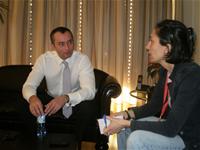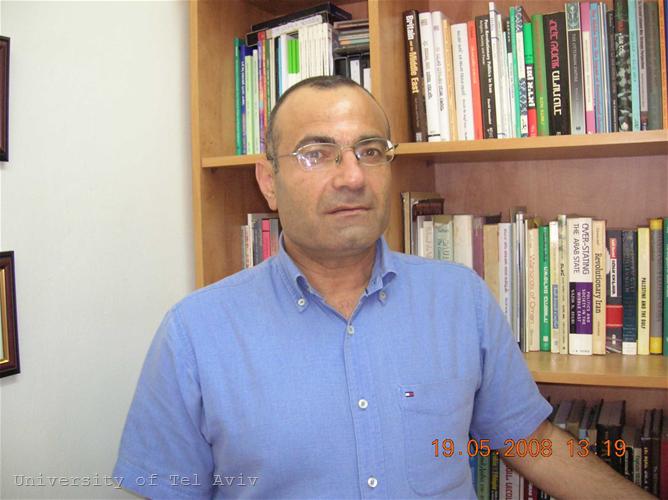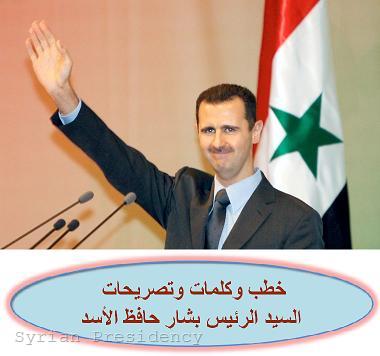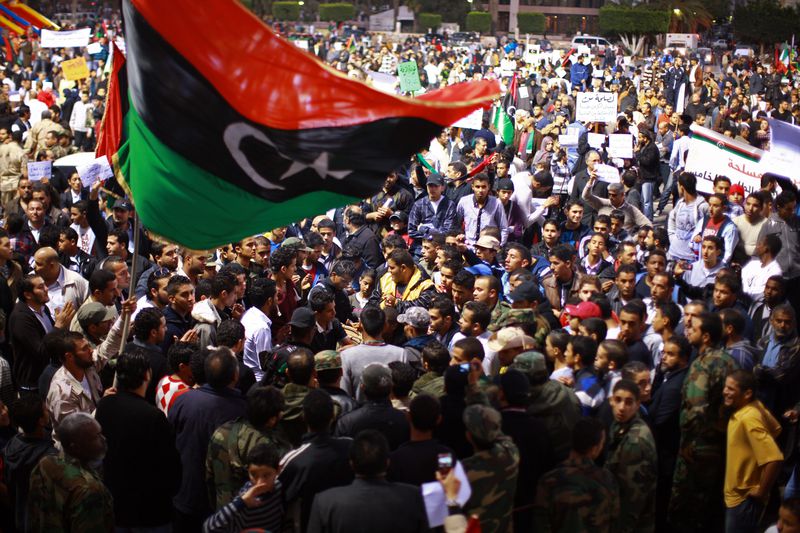N. Mladenov: The greatest danger for the Middle East is a revision of Camp David
Adelina Marini, Ralitsa Kovacheva, February 10, 2011
 We are following from the very beginning the events in Tunisia and Egypt and are trying to understand what is happening. It is not that easy, especially when you come from a country which only 20 years ago has gone through such cataclysms in before starting to build democracy and, I dare say, is still far from the Western perception of democracy. From the many positions, official and unofficial, comments, analyses, it becomes clear that we, in euinside, are not the only ones who are trying to understand what is going on, nor are we alone in the position that this time with much more caution should the civil and democratic processes be stimulated.
We are following from the very beginning the events in Tunisia and Egypt and are trying to understand what is happening. It is not that easy, especially when you come from a country which only 20 years ago has gone through such cataclysms in before starting to build democracy and, I dare say, is still far from the Western perception of democracy. From the many positions, official and unofficial, comments, analyses, it becomes clear that we, in euinside, are not the only ones who are trying to understand what is going on, nor are we alone in the position that this time with much more caution should the civil and democratic processes be stimulated.
But the question which pressed us most was could these events be foreseen thus helping the international community be more prepared in its reaction. And it was with this question that we started our interview with the Bulgarian Minister for Foreign Affairs, Nickolay Mladenov. According to him, in spite of the years-long trends, everyone was surprised the same way as everyone was surprised in 1989-90 by the speed with which the regimes were falling in Central and Eastern Europe. Mr Mladenov sees these trends in the Arab world very well presented in the reports of the UN's Development Programme yet in 2005. In these reports it is clearly seen, he tells us, that the fast birth-rate, the high unemployment among young people, the big gap between rich and poor and the limited opportunities for economic development create a dangerous situation in many countries in the Arab world.
The situation gets even more complicated by everyone's strife, including the international community's, stability to be ensured in the Middle East. And it is in this that our foreign ministers sees a major risk, created by the events in Egypt. This is the country which is the key to stability and keeping the peace in the region. If any future government in Cairo would decide to reject the Camp David agreement, this might have catastrophic consequences for the region. The Camp David agreement was signed in 1978 between Egypt and Israel after 12 days of secret talks and is, in fact, a peace agreement between the two countries. The agreement was signed by the then Egyptian president, Anwar al-Sadat, and Israeli Prime Minister Menachem Begin in the presence of President Jimmy Carter.
"If there is any revision of the agreements from Camp David, which after all led to peace between Egypt and Israel, if there is a revision of these agreements, if in the future the government in Egypt would give up all this - this would have catastrophic consequences for the region. I think that in spite the pain of many people, the high emotion which this conversations always evokes, especially in the Arab world, the majority must realise that peace is a much better possibility then war", Nickolay Mladenov says.
According to him, the biggest mistake the international community made so far is that it had not worked more closely with civil society organisations in these countries, no matter that they were a few, because currently the biggest risk for a transitional period toward democracy would be the lack of well organised opposition. The former foreign minister Ivaylo Kalfin shares the same opinion. He said that after a long rule of a single party, the opposition usually was quite torn apart, without solid structures and visible leaders. "This can be enough for ousting the current government, but is unlikely to be a stable construction in the future", he writes in his blog.
Mr Mladenov thinks, though, that the biggest mistake that can be made from now on is to assume that everything can be solved with elections. "In other words, you have elections but does this mean that you now have a real democracy, real governance, etc. This would be wrong. Elections are just a part of a long process that requires many many other factors to get arranged so that the country could be governed successfully. Elections are important, media are important, the structure of government is also important, maturity of political parties is important, independent judiciary, etc. All this is a set and the availability of this set could give us a guarantee that a sophisticated society like that in Egypt could find in itself the forces to stand against a wrongly perceived religious radicalisation that can only destroy it".
Anyway, there will be elections in Egypt and everyone who has pretenses to represent the people would stand, including the banned movement Muslim Brotherhood. It has already announced officially that it supported a secular state, of which Minister Mladenov also spoke as being a major element in the international community's approach when supporting Egypt.
According to Mr Kalfin, however, in Egypt, Tunisia, Yemen and other countries in the region there is a growing activity and relatively good organisation of some Islamist movements. Furthermore, during the uprising prisoners are being released convicted of terrorism, radical leaders return after spending long years in exile. "What we can expect is that some of the most organised political forces would be groups like Muslim Brotherhood, who were suppressed for many years by the current authorities. Adding to that the perception of people, who live in hardship, to such messages, we can understand the election victories of Hamas in Palestine and Hisbollah in Lebanon. We should not wonder if one day Egypt and Tunisia would be governed by the democratically elected Muslim Brotherhood", our ex-first diplomat writes.
It is why the message that came from Iran a little after the beginning of the avalanche of protests in Northern Africa is so disturbing, which is that these are the first indications of a forthcoming Islamic revolution in the region. Responding to euinside's question whether he thought there was enough ground for such claims, Mr Mladenov hoped there was not and added that everyone in Europe should work the change in the Middle East, in the Arab world, not to lead to the establishment of governance, based on religion, "because mingling religion with politics always leads to distortion of religion and politics".
For us being a member state of the EU it was important to understand whether there was enough grounds for the accusations that the EU again did not speak with one voice on such an important external problem, that it had no clear position, that it was slow in reacting and so on. According to our first diplomat it was not possible such a multifaceted problem, that developed in hours, to be addressed on behalf of 27 member states with a clear and firm position. According to his predecessor, though, there was a problem in EU's reaction because it was not one but many reactions - of EU's High Representative for Foreign Affairs, Catherine Ashton; of European Council President Herman van Rompuy; of the President of the European Commission, Barroso; of the Hungarian Presidency; of the member states.
However, Ivaylo Kalfin admits, in terms of content the reaction was in the right direction - "it was based upon the European values for freedom and democracy and on the right of self-determination". Both are unanimous that the difficult is yet to come and that it must be approached very carefully. In this context the question whether the European Neighbourhood Policy had failed was logical. A policy directed precisely to EU's neighbours, including those in Northern Africa and the Middle East.
For Nickolay Mladenov this policy must be overhauled precisely because it is not  focused on cooperation with civil society organisations. The main purpose so far was the Arab nations and Israel to sit on one table. From now on a possible new policy (for which there are many voices) must clearly state that the stability of the region does not prevent the democratic development of the countries there.
focused on cooperation with civil society organisations. The main purpose so far was the Arab nations and Israel to sit on one table. From now on a possible new policy (for which there are many voices) must clearly state that the stability of the region does not prevent the democratic development of the countries there.
Ivaylo Kalfin was more skeptical by responding to euinside's question that the ENP was a strong instrument, "but it should not be relied upon to realise certain political processes instead of the citizens of these countries".
 | © University of Tel Aviv
| © University of Tel Aviv | © Syrian Presidency
| © Syrian Presidency | © UN
| © UN